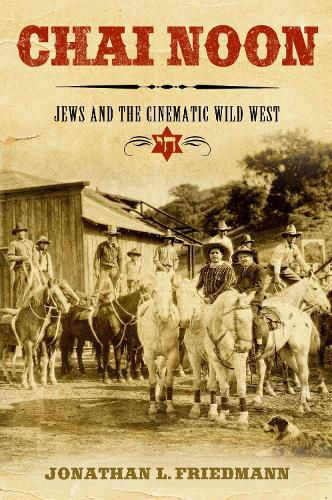Readings Newsletter
Become a Readings Member to make your shopping experience even easier.
Sign in or sign up for free!
You’re not far away from qualifying for FREE standard shipping within Australia
You’ve qualified for FREE standard shipping within Australia
The cart is loading…






Only a few Westerns contain explicitly Jewish stories or themes, and very rarely do Old West tales involve identifiably Jewish characters. Yet Jewish contributors have shaped the Western-once Hollywood's most popular genre-ever since the silent era, both onscreen and offscreen, and some filmmakers have explicitly sought to infuse the genre with a distinctly Jewish sensibility. In Chai Noon, Jonathan L. Friedmann applies some of the central questions of Jewish film studies to the Western: What makes a movie "Jewish"? What counts as a "Jewish image" on screen? What types of Jewish representation are appropriate? How much of a film's "Jewishness" owes to the filmmakers and how much to the viewer's interpretation?
This volume joins other reconsiderations of outsider and minority representations in Westerns to offer a more nuanced view of the genre. Friedmann engages with larger themes of Jewish identity in popular film, including depictions of race, ethnicity, and foreignness. He also identifies similar concerns within the invention and creation of the imaginary West writ large in American culture. The juxtapositions prove to be both unexpected and intuitively understandable.
$9.00 standard shipping within Australia
FREE standard shipping within Australia for orders over $100.00
Express & International shipping calculated at checkout
Only a few Westerns contain explicitly Jewish stories or themes, and very rarely do Old West tales involve identifiably Jewish characters. Yet Jewish contributors have shaped the Western-once Hollywood's most popular genre-ever since the silent era, both onscreen and offscreen, and some filmmakers have explicitly sought to infuse the genre with a distinctly Jewish sensibility. In Chai Noon, Jonathan L. Friedmann applies some of the central questions of Jewish film studies to the Western: What makes a movie "Jewish"? What counts as a "Jewish image" on screen? What types of Jewish representation are appropriate? How much of a film's "Jewishness" owes to the filmmakers and how much to the viewer's interpretation?
This volume joins other reconsiderations of outsider and minority representations in Westerns to offer a more nuanced view of the genre. Friedmann engages with larger themes of Jewish identity in popular film, including depictions of race, ethnicity, and foreignness. He also identifies similar concerns within the invention and creation of the imaginary West writ large in American culture. The juxtapositions prove to be both unexpected and intuitively understandable.